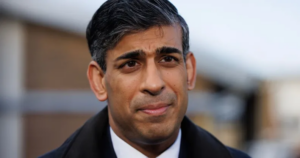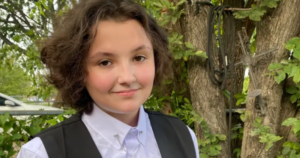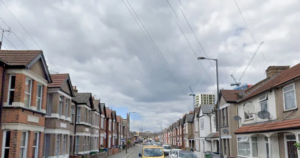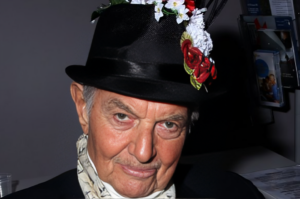Boone High School's Queer and Ally Alliance club in Orlando, Fla. had planned their third annual Drag and Donuts event, which was supposed to take place on campus on March 23rd. The event was designed to help students build self-esteem and promote self-love in high school, featuring drag queen performer Jason DeShazo, who goes by the name Momma Ashley Rose. Unfortunately, the event was canceled due to interference from the Florida Department of Education, who questioned its legitimacy and threatened the school's staff with the loss of their jobs or teaching licenses.

This event's cancellation comes at the same time as Gov. Ron DeSantis' administration has moved to expand the scope of the state's Parental Rights in Education law, which opponents have dubbed the “Don't Say Gay” law. The law currently bans instruction and discussion about sexual orientation and gender identity in kindergarten through third grade, and the expansion calls for the ban to be extended through the 12th grade.
These recent events highlight the ongoing battle for LGBTQ+ rights and acceptance in schools. As the rights of queer people continue to be threatened and undermined by anti-LGBTQ+ legislation, it is crucial to understand the impact that these laws have on students, especially those who identify as LGBTQ+.
In this case, the cancellation of the Drag and Donuts event sends a clear message that queer students are not welcome or accepted in the school environment. This type of exclusion and discrimination has far-reaching effects on LGBTQ+ students, who already face high levels of bullying and harassment in school. These types of events provide a much-needed space for LGBTQ+ students to feel seen, heard, and validated in their identities.
Furthermore, the expansion of the “Don't Say Gay” law is a direct attack on the freedom of speech and expression for LGBTQ+ students and educators. This type of legislation is designed to silence and erase queer identities and narratives, which is a dangerous and harmful practice that contributes to the marginalization of LGBTQ+ individuals.
Florida's ‘Don't Say Gay' law, which prohibits the discussion of homosexuality in public schools, has been making headlines recently as lawmakers consider expanding its reach. The law has already had a detrimental impact on students, as evidenced by the recent cancellation of a high school drag show due to fears of violating the law. As a result, young activists and LGBTQ+ advocates are speaking out against the law and urging educators and legislators to take action.
The recent cancellation of the Queer and Ally Alliance club's annual Drag and Donuts event at Boone High School in Orlando, Florida, has brought to light the ongoing battle against bans on certain types of instruction and books that impact all students, particularly those in the LGBTQ+ community.
In an interview with Teen Vogue, the 16-year-old activist, and high school student Charlie Jones shared their thoughts on the ‘Don't Say Gay' law and how it affects students. Jones believes that the law is hurting students and that those in positions of power, such as legislators and school officials, need to take action to protect LGBTQ+ students.
The event, which was scheduled to take place on campus on March 23, was cancelled by the school administration the day before after receiving a call from the Florida department of education warning that staff could lose their job or teaching license due to their presence at the event.
Scarlett Seyler, president of the Boone High School student club, spoke with Education Week about the impact of the state's bans on certain types of instruction and books on all students. She stated that the cancellation of the event was not an isolated incident as several other events have been cancelled this year.
Seyler highlighted the impact of the “Don't Say Gay” law, which currently bans instruction and discussion about sexual orientation and gender identity in kindergarten through 3rd grade, and the move by Gov. Ron DeSantis' administration to expand the law's scope to 12th grade. She stated that this legislation sends a clear message to certain students that they are not welcome and don't have a place on campus.
Seyler emphasized the negative impact of such legislation on students' mental health and academic performance. She pointed out that it is hard to focus on academic tasks when students are worried about their comfort and whether or not they belong on campus or whether their existence has merit and value.
Moreover, Seyler highlighted that banning books and certain types of instruction does not prevent students from accessing information, but rather tells them that certain topics are “bad.” She argued that banning books from the high school library is not an effective strategy as high schoolers have access to the internet and can easily find the information they seek.
Jones encourages legislators who are considering expanding the law to recognize the harm it is causing and to prioritize the well-being of students. They also urge school officials to be less afraid and to defend their students against the harmful effects of the law.
To those who will vote on whether to expand the ‘Don't Say Gay' law, Jones asks them to consider the impact it is having on students and to think about how they would feel if their own viewpoints were being censored. Jones believes that limiting people's views and the way they can express themselves based on the content of those views is dangerous and can lead to further limitations in the future.

In terms of what educators and leaders against the banning efforts can do to support students, Jones suggests attending school board meetings and speaking out, as well as speaking to the press to bring attention to the issue. They also encourage educators to make their classrooms welcoming to all students and to show their support through small gestures such as displaying stickers that say ‘all are welcome here, we're allies.'
It is crucial that lawmakers and educators take action to protect LGBTQ+ students and ensure that they feel safe and supported in their schools. Banning the discussion of homosexuality only serves to create a hostile environment and perpetuate discrimination. As Charlie Jones puts it, “We can't get to a point where teachers and administrators are too scared to defend their students.” It is time to stand up and take action to protect the rights and well-being of all students.
Author























